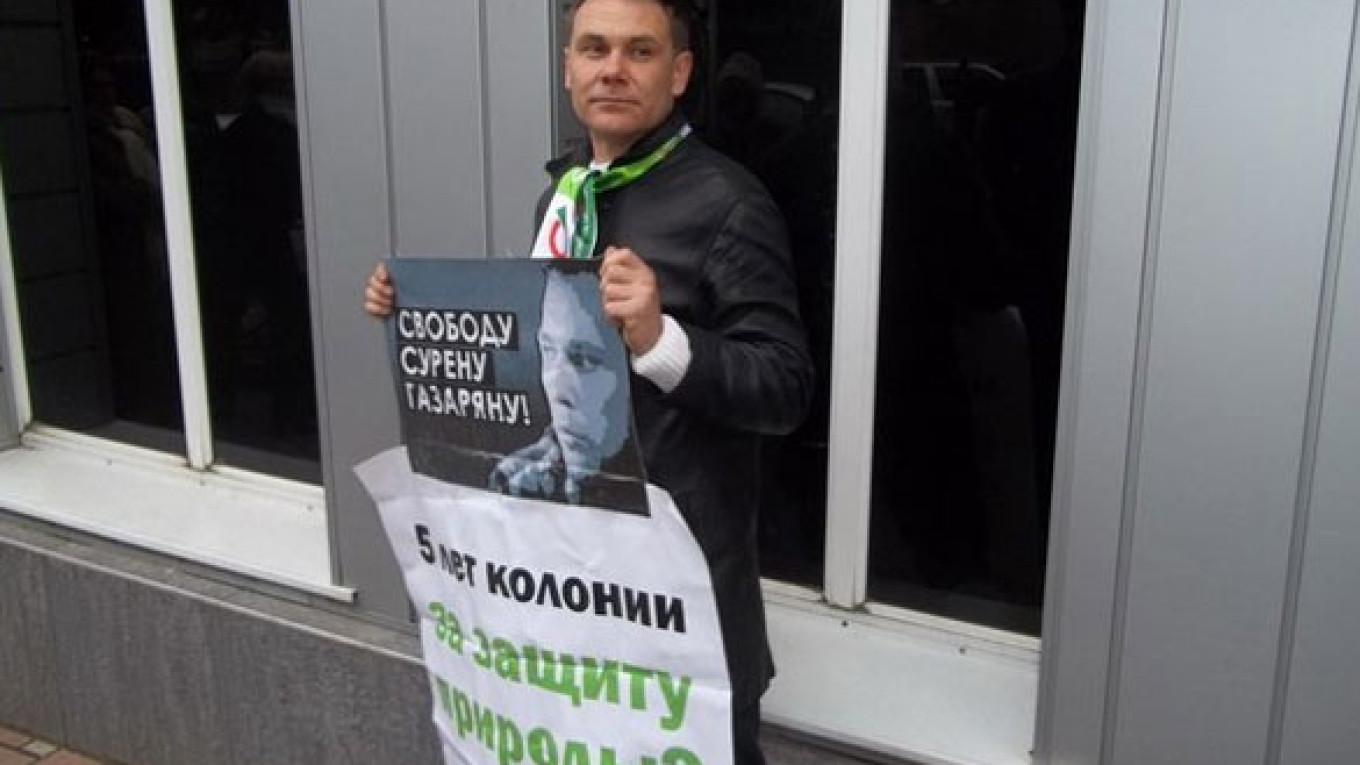Leading international rights group Human Rights Watch on Tuesday accused Russian authorities of committing numerous abuses in their preparations for the upcoming Winter Olympics in Sochi, including violations of the rights of migrant workers, local residents and environmental activists.
The accusations were part of a report on global human rights progress in 2013, presented by the New York-headquartered group at a news conference in Moscow.
The report comes after a number of foreign politicians have refused to attend the Sochi Olympics due to Russia's poor human rights record, particularly in the area of gay rights, which critics say are infringed upon by a law passed over the summer that bans the promotion of "nontraditional sexual relations" among minors.
"The whole year [in Russia] passed under the sign of a crackdown on human rights," Tatyana Lokshina, Russia program director at Human Rights Watch, told about 40 reporters at the news conference.
Russian officials have played down rights violations supposedly committed in preparations for the Sochi Games and said they have taken measures to address complaints. But Lokshina gave a lengthy list of abuses supposedly perpetrated by authorities.
She said authorities "systematically abused" the rights of migrant workers involved in the construction of Olympic facilities, many of whom were "literally kicked out of Sochi and never paid for their work." The government failed to provide residents in and around Sochi with "proper compensation" after they were evicted from their homes, which were razed to clear ground for Olympic facilities, she said.
Authorities also practiced "persecution and pressure on critics of the Olympics," such as environmental activists and journalists both Russian and foreign, "who encountered numerous problems in Sochi," Lokshina said.
She may have been referring in part to the repeated detentions in early November of correspondents for Norway's TV2 television station, the country's official broadcaster of the Sochi Games, while they reported on stories in the Adygea republic, which borders the Krasnodar region where Sochi is located.
Lokshina noted that the most outspoken Krasnodar ecologist, Yevgeny Vitishko, who "has been telling about the ecological harm of construction" in and around Sochi, was sent to prison for three years. Vitishko was sentenced in late December for writing the word "thief" on a fence around the residence of Krasnodar region governor Alexander Tkachyov.
Vitishko's complaints against Tkachyov were not related to Olympic construction but to what he said was illegal seizure of land for his residence in a nature reserve where construction is banned by law.
The Kremlin "designated" gay people, migrants and foreign-funded nongovernmental organizations as "enemies," Lokshina said.
"Last year was key for preparing for the Olympics, but it was in 2013 exactly when the country that wants to open arms to the world practiced undisguised discrimination, in particular on the legal level," Lokshina said.
She said she was referring to the July law prohibiting gay "propaganda" among children, as well as to the November 2012 law threatening fines and a shutdown of foreign-funded NGOs if they are ruled to be involved in broadly defined "politics" and fail to register as "foreign agents," a term that in Russian "means foreign spies," Lokshina said.
Amid the alleged violations, the amnesty in December of some high-profile prisoners, among them former Yukos owner Mikhail Khodorkovsky, two Pussy Riot members and 28 Greenpeace activists, was "not as significant as we would like it to be," Lokshina said, reiterating the widespread view that the amnesty was a publicity stunt.
Apart from what Lokshina detailed, the Russia chapter of the Human Rights Watch report elaborates on restrictions on taking part in and voting in elections; freedom of assembly and freedom of speech; abductions and extrajudicial killings of Islamists in the North Caucasus; failure to abide completely with the rulings of the European Court of Human Rights; poor palliative care and barriers for disabled people; and other topics.
Contact the author at n.krainova@imedia.ru
A Message from The Moscow Times:
Dear readers,
We are facing unprecedented challenges. Russia's Prosecutor General's Office has designated The Moscow Times as an "undesirable" organization, criminalizing our work and putting our staff at risk of prosecution. This follows our earlier unjust labeling as a "foreign agent."
These actions are direct attempts to silence independent journalism in Russia. The authorities claim our work "discredits the decisions of the Russian leadership." We see things differently: we strive to provide accurate, unbiased reporting on Russia.
We, the journalists of The Moscow Times, refuse to be silenced. But to continue our work, we need your help.
Your support, no matter how small, makes a world of difference. If you can, please support us monthly starting from just $2. It's quick to set up, and every contribution makes a significant impact.
By supporting The Moscow Times, you're defending open, independent journalism in the face of repression. Thank you for standing with us.
Remind me later.


